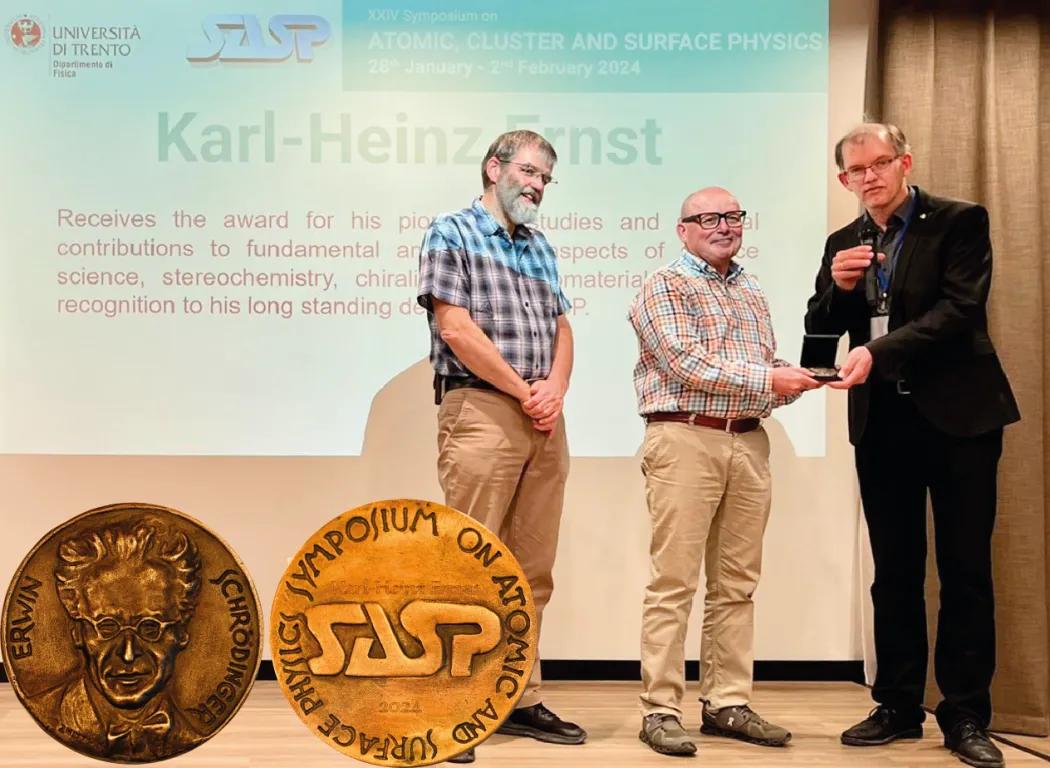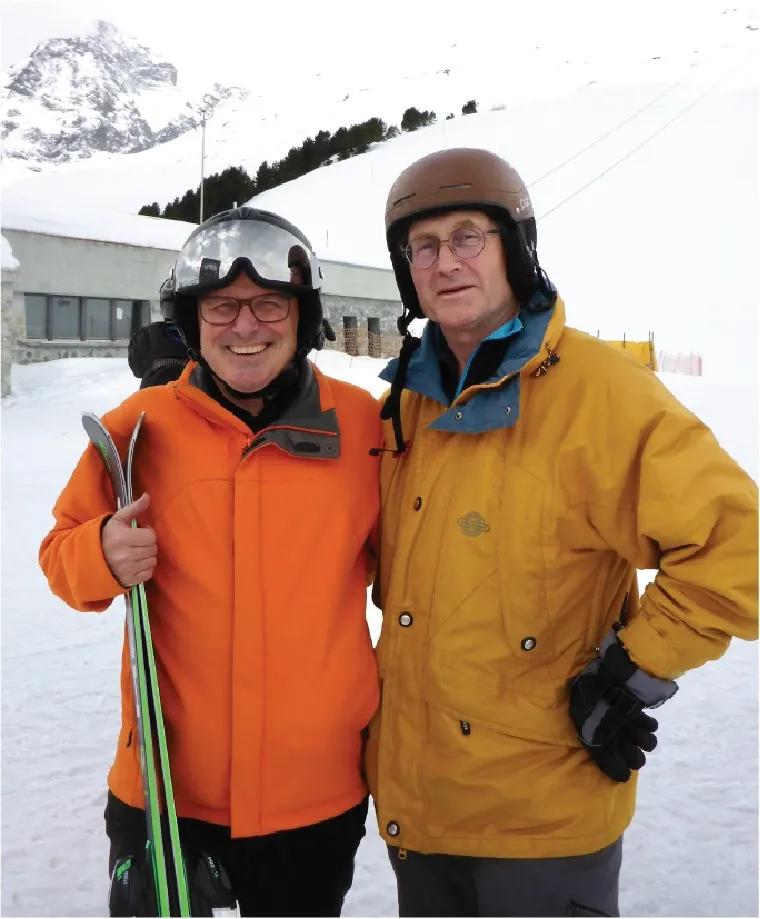This year's prestigious Erwin Schrödinger Gold Medal was awarded to Professor Karl-Heinz Ernst for his pioneering contributions to fundamental and applied aspects of surface science, stereochemistry, chirality and nanomaterials. The medal was awarded in February at the XXIV Symposium on Atomic, Cluster and Surface Physics (SASP) in Andalo, Italy.
The SASP awards ceremony is held every two years as part of the conference, and although Professor Ernst, who is also based at FZU, has been attending the conference for many years, he never imagined that one day he would be a laureate. "You can see the value of the award by looking at who has won it before you. That makes the recipient more special," Ernst commented on the award in our interview.
This year, the medal was surprisingly awarded to two scientists associated with Prague. The second recipient is renowned scientist Jana Roithová. Both laureates were surprised because who the medal goes to is known only when the person is invited to the podium.
Looking closer at the research
Professor Ernst is renowned for his research in the field of surface science, particularly heterogeneous catalysis. "For me, heterogeneous catalysis is basically the most important process we have in modern society. My goal is not to understand the catalysis better, but to use the same process to research or create new materials," he explains. These molecules with very specific physical properties could be used for new types of electronics or for molecular electronics in the future.
As a young researcher, Ernst had an idea and became intrigued by these special molecules. He originally planned to work on them for only a few years, but now almost three decades have passed and he is still fascinated by them. The molecules resemble spiral staircases and show an interesting effect: they act as a filter and only let certain electrons through. This new effect is not yet fully understood and is therefore the subject of his current research, which he is also doing in Prague with colleagues at Cukrovarnická. They have been independently of his research developing and exploring similar approaches, which eventually has led to their collaboration.
The role of artificial intelligence in research
When asked about the role of artificial intelligence in research, Professor Ernst was cautious: "When it becomes possible to combine artificial intelligence with robots in the lab, it will be a revolution, but I don't know if anything really good will come out of it."
There are now approaches where artificial intelligence develops not only molecules but also materials. However, such approaches are controversial because they are based on computer calculations and the materials may not exist at all or may be dangerous because it is not clear whether the molecules can be manufactured. An example scenario could be experimenting with artificial intelligence to see if it can create a molecule when given certain data, similar to what Nobel laureate Ben Feringa did.
Although Professor Ernst is retiring from his current position at the University of Zurich, he plans to continue his research in Prague and taking on new challenges.
Medal was awarded to:
2022 – Gereon Niedner-Schatteburg, Kaiserslautern, Germany
2020 – Frédérik Merkt, Zürich, Switzerland
2016 – Roberto Marquardt, Strasbourg, France and Paul Scheier, Innsbruck, Austria 2018 – Tom Rizzo, Lausanne, Switzerland
2014 – Stephen D. Price, London, United Kingdom
2012 – Dieter Gerlich, Chemnitz, Germany and John Maier, Basel, Switzerland
2010 – Kurt Becker, New York, USA
2008 – Helmut Schwarz, Berlin, Germany
2006 – Davide Bassi, Trento, Italy and Martin Quack, Zürich, Switzerland
2004 – Anna Giardini, Roma, Italy
2002 – Eugen Illenberger, Berlin, Germany
2000 – Jean H. Futrell, Richland, USA
1998 – Eldon Ferguson, Boulder, USA and Chava Lifshitz, Jerusalem, Israel
1996 – Werner Lindinger and Tilmann Märk, Innsbruck, Austria
1994 – Zdenek Herman, Praha, Czech Republic
1992 – David Smith, Birmingham, UK

